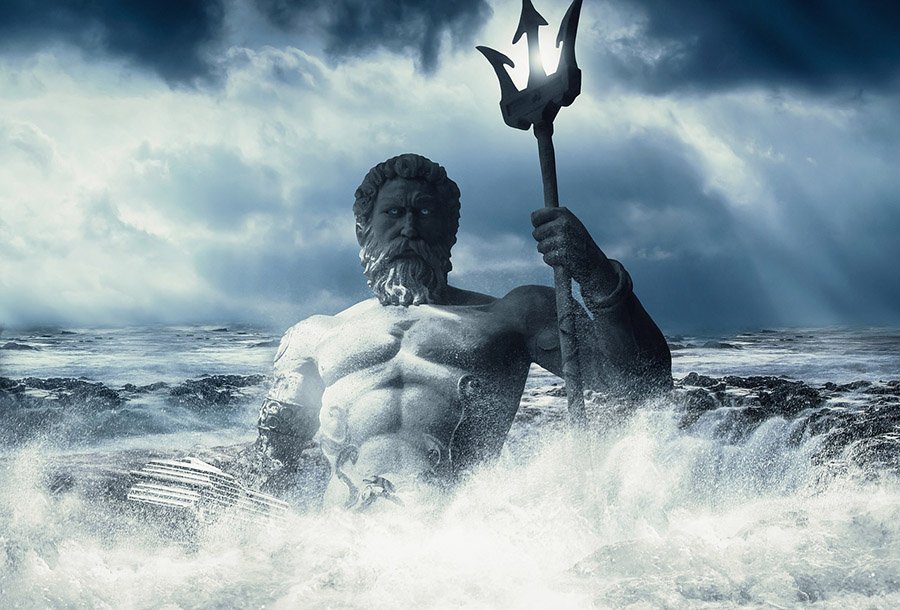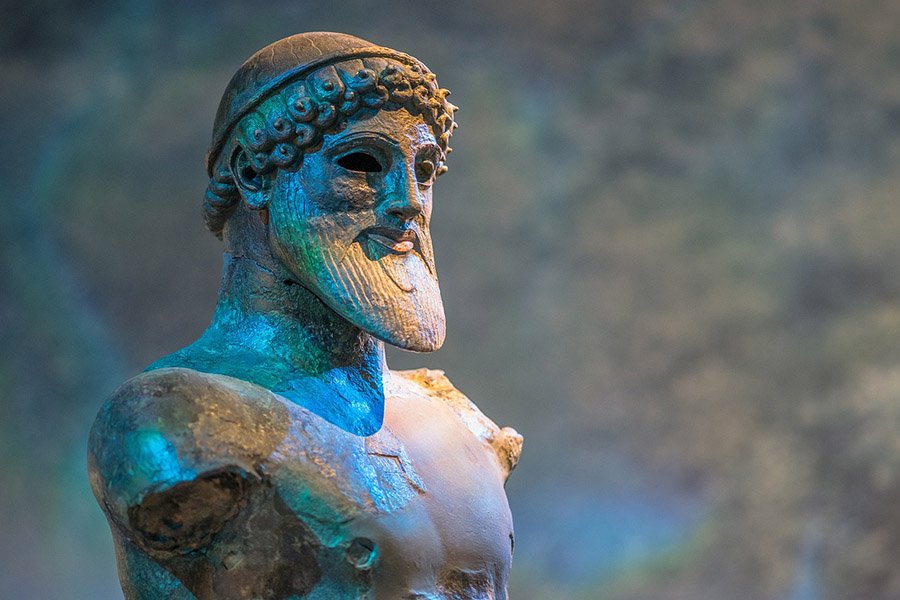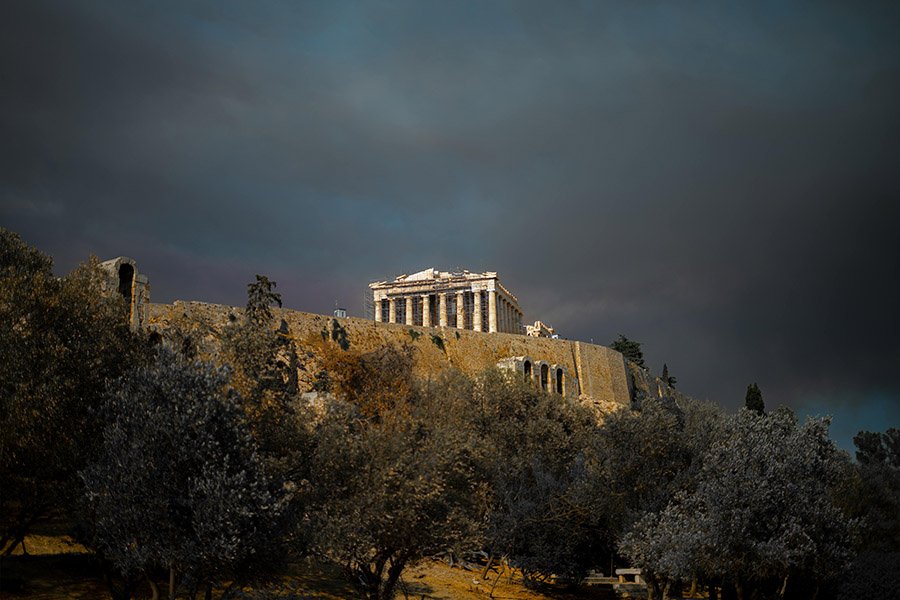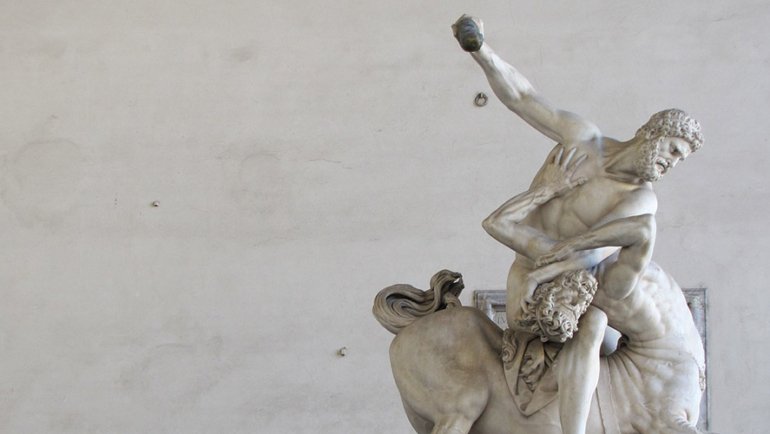Poseidon, one of the most powerful gods in Greek mythology, is a figure of immense complexity. Known for his dominion over the sea, earthquakes, and horses, Poseidon played a central role in the pantheon of Olympian gods.
His influence extended far beyond the oceans, shaping the myths and legends that have fascinated people for centuries. Here are 10 intriguing facts about Poseidon that reveal the depth of his character and the extent of his power.
1. Poseidon Is the God of the Sea, Earthquakes, and Horses
Poseidon’s dominion over the sea made him a vital deity for sailors and fishermen who depended on his favor for safe voyages and bountiful catches. However, his powers were not confined to the ocean. Poseidon was also the god of earthquakes, earning him the epithet “Earth-Shaker.” His connection to horses further expanded his influence, as he was believed to have created the first horse and was often depicted riding a chariot pulled by magnificent steeds.
2. Poseidon Was Known as the Earth-Shaker
Poseidon’s title as the “Earth-Shaker” reflects his fearsome ability to cause earthquakes. Ancient Greeks believed that when Poseidon struck the ground with his trident, it could unleash powerful tremors, symbolizing his control over both land and sea. This aspect of his power made him both revered and feared, as his wrath could bring devastation to mortals.

3. Poseidon’s Trident Was Crafted by the Cyclopes
The trident, Poseidon’s iconic weapon, was forged by the three Elder Cyclopes, who were freed by Zeus, Poseidon, and Hades during their battle against the Titans. This mighty weapon was unbreakable and could cause earthquakes, tsunamis, and even the creation of new water sources. The trident became a symbol of Poseidon’s authority and his ability to command the seas.
4. Poseidon Created Horses
Poseidon’s association with horses is deeply rooted in Greek mythology. He was known as “Poseidon Hippios,” the tamer of horses, and was believed to have created the first horse. His connection to these noble animals extended to his role as the father of Pegasus, the winged horse born from the blood of Medusa. Horses were sacred to Poseidon, and they often appeared in myths as symbols of his power.
5. Poseidon Had a Volatile Temper
Poseidon was notorious for his quick temper and unpredictable nature. His anger could manifest in destructive storms at sea or catastrophic earthquakes on land. This volatile temperament made him a formidable deity, capable of punishing those who crossed him. His legendary rivalry with Athena over the patronage of Athens is a prime example of how his wrath could shape mythological events.

6. Poseidon Was the Patron of Sailors
Sailors and fishermen in ancient Greece held Poseidon in high regard, often offering sacrifices to secure his favor before embarking on voyages. His protection was believed to ensure calm seas and safe journeys, while his wrath could lead to shipwrecks and other disasters. Temples and sanctuaries dedicated to Poseidon were common in coastal areas, reflecting his importance to seafaring communities.
7. Poseidon’s Children Were Both Heroes and Monsters
Poseidon fathered a vast number of children, both mortal and immortal. His offspring included famous heroes like Theseus, who was known for his strength and bravery, and monsters like the Cyclops Polyphemus, who played a significant role in Homer’s “Odyssey.” This diverse lineage illustrates Poseidon’s dual nature as both a protector and a bringer of chaos.
8. Poseidon’s Rivalry with Athena
Poseidon’s rivalry with Athena is one of the most famous stories in Greek mythology. The two gods competed to become the patron deity of Athens by offering gifts to the city. Poseidon struck the Acropolis with his trident, creating a saltwater spring, while Athena offered an olive tree, symbolizing peace and prosperity. The Athenians chose Athena’s gift, leading to her becoming the city’s patroness and leaving Poseidon with a lingering grudge.

9. Poseidon Was Married to Amphitrite
Poseidon’s wife, Amphitrite, was a sea nymph and one of the Nereids. Despite his numerous affairs, Amphitrite remained his queen, and together they had several children, including Triton, who served as Poseidon’s messenger. Their marriage symbolized the union between the god of the sea and the ocean itself, reinforcing Poseidon’s status as the ruler of all waters.
10. Poseidon’s Role in the Trojan War
Poseidon played a crucial role in the Trojan War, siding with the Greeks against the Trojans. His interventions were pivotal in the war’s outcome, particularly in naval battles. However, his anger towards Odysseus, who had blinded his son Polyphemus, prolonged the hero’s journey home, highlighting Poseidon’s influence over the fate of mortals.
Final Thoughts
Poseidon’s powerful and multifaceted nature made him one of the most significant deities in Greek mythology. His dominion over the seas, his creation of horses, and his fearsome temper ensured that he was both revered and feared by all who knew of him. Through these fascinating facts, we gain a deeper understanding of Poseidon’s role in ancient Greek culture and the enduring legacy of his myths.
